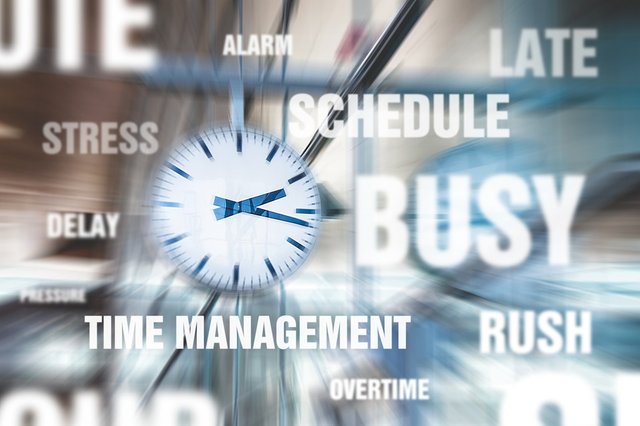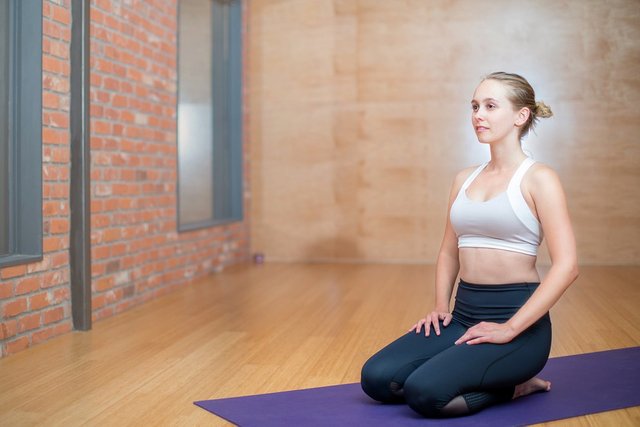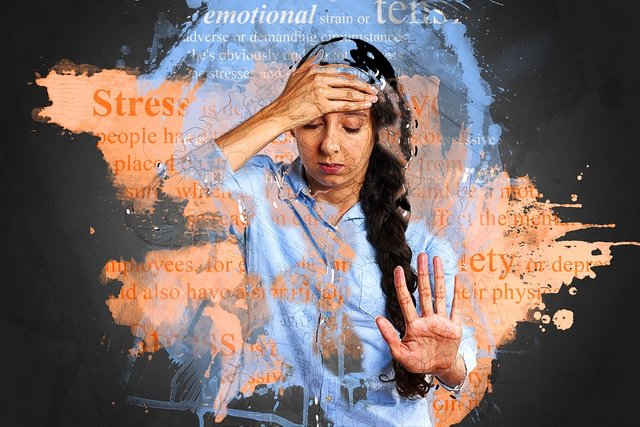Stress: Why does it happen and how can we manage it
Many things may be said to cause stress. A difficult business meeting, for example or the prospect of facing redundancy or retirement. Conversely stress can caused by events such as recent promotion, marriage or the birth of a child.
Any activity of situation which threatens out ability to cope will cause a certain amount of stress. Sometimes this may have a beneficial effects e.g the stress one feel before an important interview may be just the spur required for an improved level of performance. The Adrenalin which released into the body during stressful situation often makes us more alert, it can produce more energy and drive to help us to cope with difficult life events. This is called the stress response.
The stress response is as old as the human race. Also called the fight/flight reaction it is designed to be short-lived, a bit like squeezing the accelerator in a car, it provides us with a quick burst of energy. This is fine so long as there is adequate time for us to recover from one stressful event to another but in today’s fast moving and pressurized world this is not always possible. Prolonged levels of stress cease to be useful to us. This kind of harmful in stress has been defined as an excess of demands on an indication of individual beyond their ability to cope. This state can feel unpleasant and may affect the way we feel, at times feeling constantly tired, experiencing muscular tension, feeling irritable and tend to drink and smoke more.
It is important to point out that as individuals we all experience some stress at some point of time. The reasons why one person may cope better than another are complex, but include personality type, cultural differences, social circumstances and the use of proven ways of dealing with stress. how much stress we feel depends on us and how we see a given situation.
Epietetus wrote : < “ People are disturbed not by things, but the view they take of them.
The important thing to realize is that although we are not always able to change our personality or social circumstances we are all bale to learn more helpful ways of dealing with stress.

source
What Causes Stress?
The causes are many and varied. We have already mentioned demands and pressure. But these do not affect everyone in the same way. One person may see something as a demand, whereas another person may see the same thing as being challenging or enjoyable (e.g. mountaineering). Everything in your environment may be seen as stressful including:
- Life Events: (separation, illness, leaving home, moving house, holidays)
- Relationship :(family, friends, work mates, teachers among others)
- School or Work: ( exams, deadlines, work load)
- Standards (your own, family, friends, society). Many changes in a short period of time.
These are known as stressors. Stress usually occurs when there is an accumulation of stressors. Other significant factors include: - The importance of the stressor
- The duration of the stressor
- The intensity of the stressor and,
- The degree of control over the stressor.
Is Stress Normal?
YES, sometimes you may feel under pressure when faced with difficult events of tasks-an important exam, a job interview, making a speech or taking your driving test. These are all examples in which stress may play a positive and even necessary part. Stress prepares your body for action and often provides the spur you need to achieve such things.
What are other Effects of stress?
Unfortunately, they are not all positive, the effects vary from person to person. If stress is sustained then anxiety, panic, anger, irritability, tension, aches, pains and inability to “ switch off” can all be signs that you are under pressure. If the pressure continues then tiredness, lethargy, depression, burn out and even exhaustion may occur.

source
What can I do about Stress?
The good news in may things are as follows:
- Being aware of your own stressors and stress reactions.
- Regular physical exercise
- Learning relaxation as a skill.
- Sharing problems with someone you trust.
- Knowing what you want and letting others know what you want.
- Take pressure off yourself.
- Express your feelings
- Look after yourself.
However, something’s which may seem to help do, in fact, create further stress and may result to physical and psychological health issues: - Smoking.
- Too much caffeine.
- Over eating and under eating.
- Drugs.
- Being aggressive.
- Throwing ourselves completely into work/study.
- Bottling things up.
The golden rule is to try and maintain a healthy balance between work, rest and play.
Signs of Stress, what is it?
Stress may be taught of as the imbalance between what you interpret as demands and what you view as your ability to cope.
| Physical | Psychological |
|---|---|
| Loss of appetite | Loss of concentration |
| Craving for food when under Pressure | Poor memory |
| Frequent indigestion or heartborn | Easily distracted |
| Constipation or diarrhoea | Worry |
| Insomnia | Depression |
| Constant tiredness | Lack of motivation |
| Sweating for no good reason | Negative thoughts |
| Nervours tics | Irritability with certain thoughts |
| Nail bitting | Suspicion |
| Headaches | Aggression |
| Nausea | Lack of Confidence |
| Wind | Inadequacy |
| Crying | Feelings of dread |
| High blood pressure | Apathy |
| Importance of frigidity | Fatique |
| Racing hearbeat | Panic |
| Dizziness | Feeling out of control |
| Dry mouth | Self-conspiciousness |
| Butterflies | Unable to cope |
| muscle tension | Unable to cope |
| Migraine | Mood swings |
| Skin allergies | Easily Upset |
| Ulcers | Indecision |
| chest pains | Short-tempered |
| Nervous tremors | Fear |
| Over breathing | Insecurity |
| Behaviour | |
|---|---|
| Restless | Put off decisions |
| Unable to start or finish things | intolerant |
| Rushing things | Increasing time off work |
| No time for hobbies | Inability to relax |
| Drink | Over-react to situations |
| Smoke | Lossof control of emotions |
| Clumsy | Avoiding situations |
| Avoidance of tasks | Unreasonable |
Stress Factors for women at work
- Lower salary.
- Being the token women.
- Cock of same-sex role models.
- Sex stereotyping role imposition.
- Performance pressures.
- Sex discrimination and prejudice.
- Sex a disadvantage re-job promotion/career prospects.
- Colleagues of opposite sex treated more favourably by management.
- Sexual harassment
- Lack of encouragement from superiors
- Lack of social support from people at work
- Dependants at home
- Lack of domestic support at home.
- Conflicting responsibilities associated with running a homme and a career
- Being single and labelled as an 'oddity'
- Career-related dilemma concerning: whether to start a family, whether to marry/live with someone.
- Lack of emotional support at home.
How the Body responds to stress
- The brain stimulates hormonal changes, including the production of the stress hormones' adrenalin and noradrenalin.
- Muscles tense ready for action.
- The pupils of the eye dilate
- The heart beats faster to get extra blood to the tense muscles and this raise blood pressure.
- The extra blood for our muscles means that we need more oxygen and so we breathe more quickly.
- The liver releases glucose to provide extra energy for our muscles.
- Our digestive systems shut down so our mouths go dry and our sphincters close.
- We sweat in anticipation of expending extra energy
- Our immune system slows down.
Practical Ways to Relax
Relaxing during the day does not have to involve hard to follow techniques of having to listen to a relaxation tape. There are many ways to relax and the process of relaxing should not be confined to winding down at the end of the day'. It is important to be able to relax before and during stressful events as well as afterwards. Relaxing at certain key times during the day will help you to cope more effectively with pressure and should generally improve performance.

source
Tips for Everyday Relaxing:
Use Exercise: Any planned physical activity will help to release excess tension. Take advantage of any opportunity for physical activities such as exercise and reactional activity. Structured or unstructured, especially when you feel stress levels rising.
Check your posture: Muscle tension is made worse by bad posture. Sitting in an uncomfortable position, walking with slumped shoulders or doing anything which places a unnatural strain on the muscles will exacerbate feelings of tension. The golden rule is to keep your spine as straight as possible, whatever you are doing.
Show down your breathing:
This is especially useful before any stressful event. A few deep, slow breaths will automatically give you more control.
Slow down Physically
Rushing around heightens the feeling of being under pressure. Try making a conscious effort to slow down. You will possibly find that you have more time( especially to think) rather than less.
Relax Individual Muscles
Try to identify which groups of muscles become tense during a stressful situation(most commonly the neck, shoulder and facial muscles) and consciously relax quicker if they are tensed first, so try this.
** Massage**
Self massage is a skill accessible to us all. Gentle rubbing of tense muscles is an automatic response to stress, it helps to relax muscles and has a soothing effect on the mind. The shoulder, neck and facial muscles can be easily massaged but most of the other muscles will benefit too when tense.
*Release tension emotionally:8
Rid yourself of feelings of frustration, anger, worry etc, in any way that is safe for you to do so- writing them down, shouting them out or taping your thoughts on a Dictaphone. You cannot deny your feelings so give them a safe form of release.
talk things Over
Just talking does help. Try to identify atleast one person who will agree to 'de-brief' with you when the need arises. Good ground rules and mutual trust between two people will enable you to get things off your chest' and say whatever you feel.
Take a break
The longer you go without a break the more your performance beneficiaries. The golden rule is to take a break before you feel tired.
Take 'Micro-breaks
Anything from 10 to 60 seconds can be termed a micro break. Use this 'emergency' method to shut off thoughts about the matter in hand. It does work for me. Close your eyes-concentrate on breathing deeply try to relax all the major muscle groups into the fray, try to think for a moment after your micro-break and re-assass what needs to be done.
Develop Release Mechanism:
Triggers that help you relax. Useful for winding down at the end of the day, these may include: a hot bath: listening to music; reading.
Give yourself time to yourself:
At home or at work we all need short periods of peace and quiet in between the hustle and bustle of a busy routine.
Have a Change of Activity:
Try doing something different for a short while if what you are doing is raising your stress levels. A change is as good as a rest.
Conclusion
There several factors that can contribute to stress and its effect on the body, some of them you have found in this article. Stress occurence is normal, it can happen when you are under pressure or difficulty . You can do a lot to help yourself manage stress. Hope you enjoy reading article. If you have any further question please feel free to ask. Thanks for reading my article.
References
Stress Symptoms, Signs, and Causes
Why stress happens and how to manage it?
Join @Steemstem Community on steemit.chat
Join The first Decentralized Clinic on Steem Blockchain for Health Consultation @air-clinic



Marvellous Job sir, Totally appreciated.
My pleasure
Oh.. there are a lot of causes of depression and stress. If a man want to live a happy life he must be free from mind confliction. As physical, our mind also needs some treatments. When getting illness human body one who going to consult Doctor but while mind in problem they never care of it. that's because people are being lack of awareness. Like this article will make a good awareness among the readers.
Behalf of #air-clinic and #hug-challenge of @nairadaddy
https://discord.gg/rqded5m
@kunani thanks for your contribution.
Welcome!
Hey @polaleye50,
this is a beautiful contribution to stress management.
At a time like this when everyone is hustling and bustling, its very necessary for people to read this your detailed guide.
Thanks for spreading health across the blockchain.
Cheers!
#AIR-CLINIC
@nairadaddy @air-clinc thanks for reading. air-clinic has been my inspiration.
Nice
the causes of stress which you mentioned here are pretty common but almost everybody skip it!
Yeah, it is very easy to skip common things. Thanks for reading.